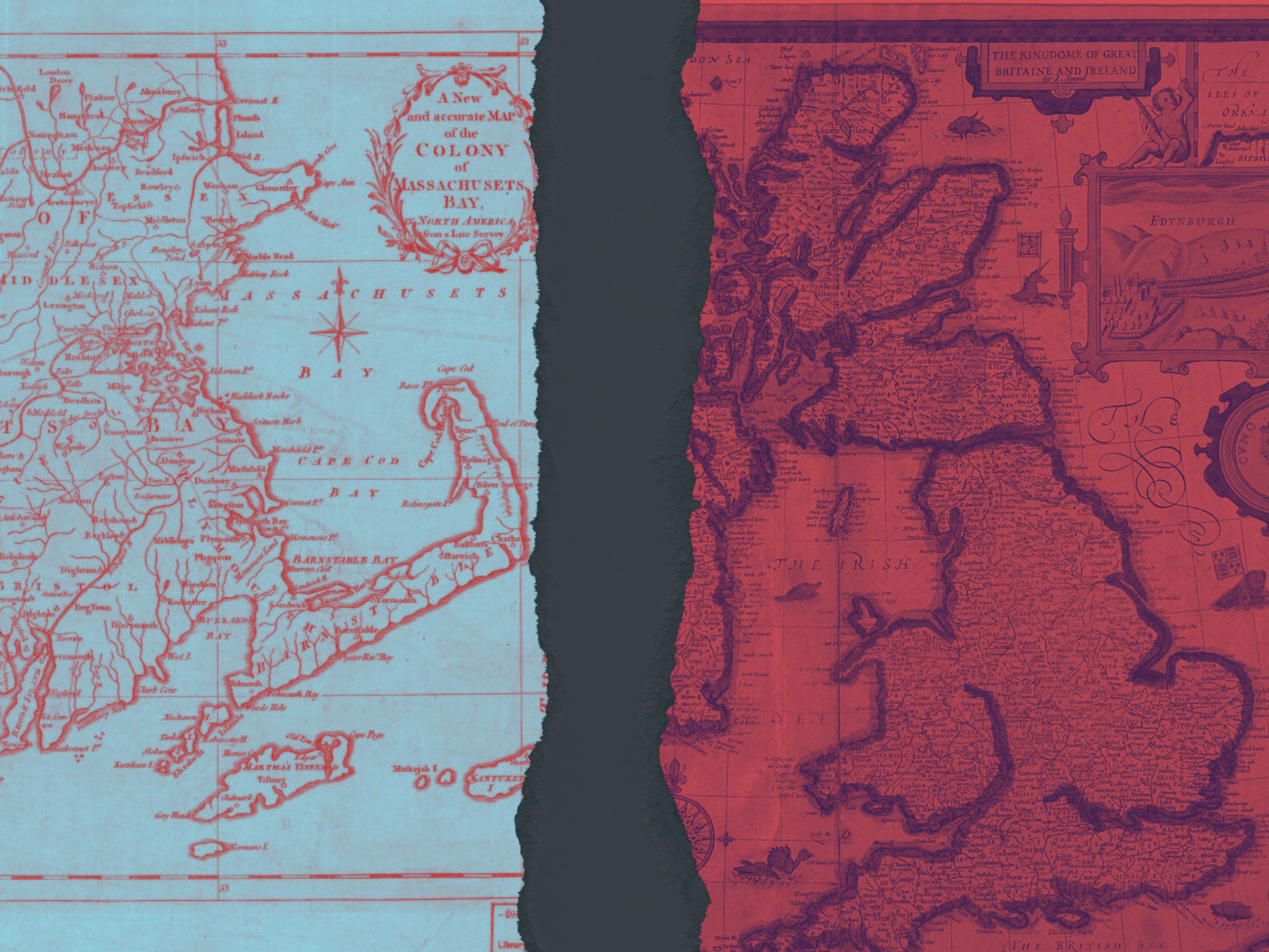
On February 9, 1775, the Parliament of Great Britain declared Massachusetts in a state of rebellion. With cause: Massachusetts’ Provincial Congress had met without royal leave and was organizing and training a military force. Massachusetts’ disobedience could no longer be ignored. Now, Britain would arm itself for war. Orders sailed to Governor Thomas Gage in Massachusetts to bring the rebels to heel. Soon, his men would march to Lexington and Concord.
We should have some sympathy for the Members of Parliament who voted for Britain’s troops to fix their bayonets. Yes, British policy toward its American colonies had been criminally foolish for a decade and more. But what was Britain to do now that Massachusetts openly defied royal authority and raised troops? And it did not defy just Great Britain’s King. It defied Parliament, itself elected by the free people of Great Britain—the freest people in the world, save, now and suddenly, the inhabitants of their American colonies. Massachusetts did not fight the tyranny of a monarch but the sovereignty of the free British people, as represented in Parliament.
Some in Parliament dissented. Soon, Edmund Burke would give his speech on Conciliation with the Colonies. But his solution was that Parliament should reign but not rule—to be a British Commonwealth avant la letter, a hollow and unsovereign crown. And Burke did not quite realize how Americans had changed—that they no longer demanded merely the rights of Englishmen but now stood firm for the rights of man. Americans no longer could be conciliated to be subjects of Great Britain, with even the loosest reign. The members of Parliament who voted to declare Massachusetts in rebellion saw what Burke did not: this dispute of free peoples must be subject to the arbitration of war.
[RELATED: Rebellion by Habit: How Massachusetts Made Liberty Stick]
The British had good reason to be confident. They held the mightiest maritime empire in the world; if they could not invade and conquer China or Russia, or even France, they could transport and supply crack British regiments 3,000 miles across the Atlantic to defeat their colonial rebels, as in 1759 and 1760, when they had defeated the French garrisons of Quebec. The British contempt for their American cousins was too strong—but untrained militia rarely stood up in battles to trained soldiers. Surely, Massachusetts could be pacified by Britain’s troops. Surely, the other colonies could be as well, if they chose to stand by Massachusetts.
The perceptive might worry: What empire has reasserted control over rebellious colonies so far from home? What if a defeated and resentful France should take advantage of this civil war within our Empire? What if the rebels are competent and fortunate? And all these questions might be subsumed under the one: Who knows what will happen once you go to war? But Britain had now made its decision. Battle would determine the outcome of the struggle.
Battle deferred until the news of Parliament’s vote traveled the wide ocean to Boston harbor and General Gage. But that would be soon enough. Come springtime, the British troops would march.
Follow David Randall on X
Want to stay updated on new articles in our American Revolution series? Sign up here to be notified when the next piece is published!
Art by Beck & Stone
Part of the problem was that Britain had not decided — while the British ARMY was at war, the British NAVY was not.
This led to situations where the Army’s supply ships were being captured within sight of shore — the Americans had a favorable wind that allowed them to capture the ships and flee while the British warships were stuck in Boston Harbor and could do nothing.